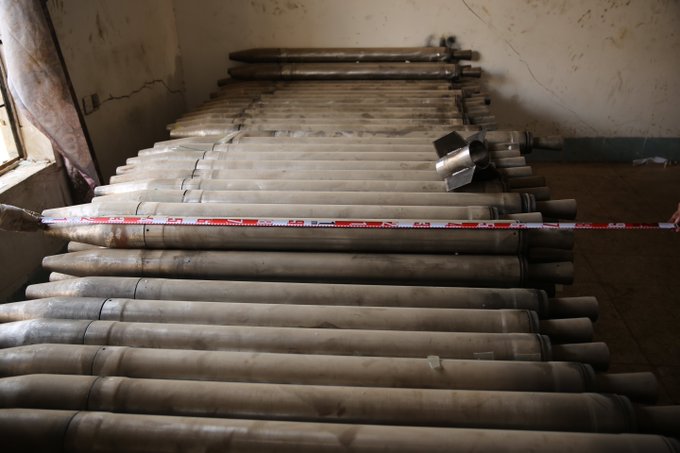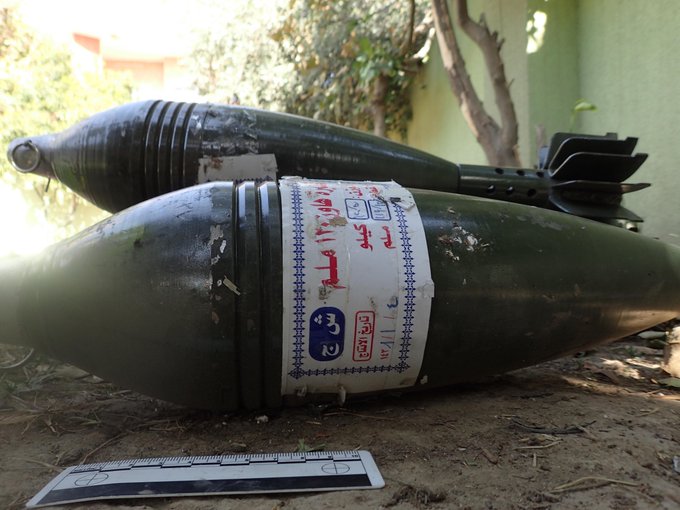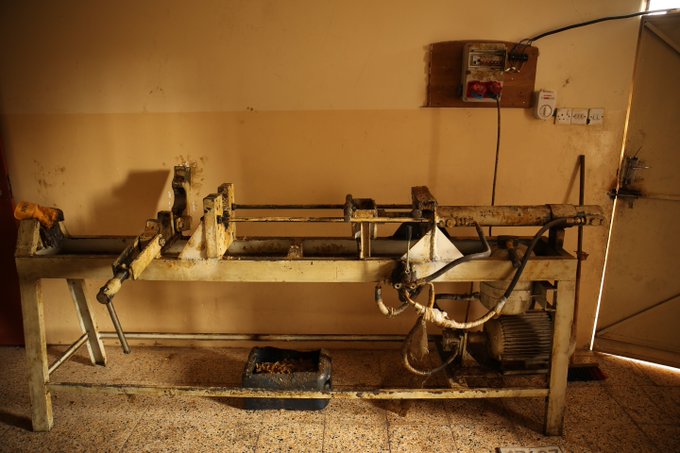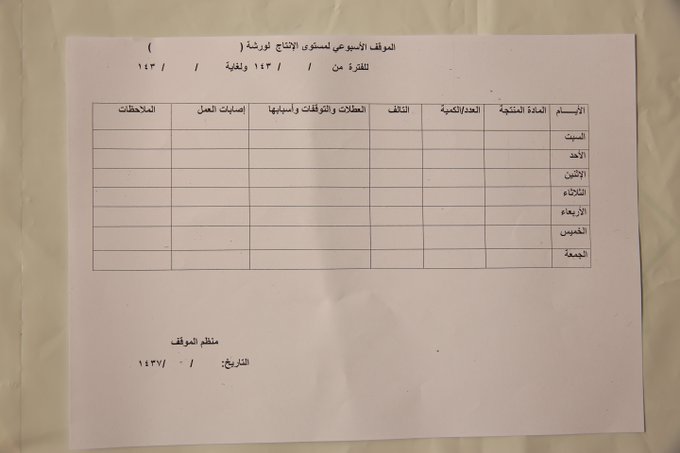As the report of an independent UK investigative group reveals, the Islamic State (IS) terrorist group use an efficient supply chain to produce rockets, shells and mortars in Mosul.

Mortar rounds left behind by retreating Islamic State (IS) militants, are seen displayed outside a base of the Iraqi army’s 9th armoured division near the village of Ali Rash, on the outskirts of Mosul, on November 19, 2016 (Photo: AFP / Achilleas Zavallis)
According to Conflict Armament Research (CAR), an independent UK investigative group, factories of the Islamic State (IS) terrorist group in Mosul use an efficient supply chain, quality control and standardization to produce thousands of rockets, shells and mortars.
New finding: When #ISIS can't get #weapons, they make their own - to an industrial scale ow.ly/UnAb3075AaH
Report: #ISIS has 'Standardisation & Quality Control' dept issuing guidelines on vast #weapon production ow.ly/x5aQ3075A35
#ISIS #weapon production capacity similar to some nations. Not improvised. It's industrial ow.ly/TpWD3075A4J
“The production of factory grade packaging is one example, whereby the group has constructed palletized wooden boxes for the long-term storage, and long-range transport, of rockets and mortar rounds,” the CAR report reads.
The sophisticated production process allowed to produce the tens of thousands of rockets and mortars. For this, IS terrorists procured commercial goods in bulk, in particular chemical precursors and fertilizers. The necessary components “had been procured on different dates, in large quantities, and over a long period of time.”
New Report: Standardisation & Quality Control in #ISIS Military Production ow.ly/rYSS3075A01 #Iraq #Mosul
According to the report, the IS purchased chemicals from the same supplier from the Turkish domestic market.
“CAR’s findings continuously reinforce evidence that the group operates a major acquisition network in Turkey and has a direct line of supply from Turkey, through Syria, to the Mosul area,” the report claims.
However, it is still unclear, how the technology was obtained by terrorists, but its usage poses serious questions.





Comments
Post a Comment